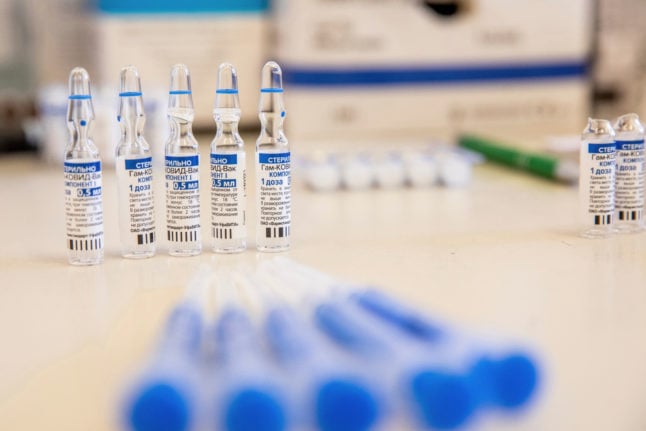The southern state has “signed a memorandum of understanding today… for the supply of Sputnik,” Söder told reporters in Munich, making him the first state premiere to sign up for the vaccine.
If the Sputnik vaccine is approved by the European Medicines Agency (EMA), Bavaria is set to receive around 2.5 million doses in the coming months through a company in the Bavarian town of Illertissen, Söder said.
The German government said last month that it would be open to using Sputnik V if it is greenlit by the EMA.
Such approval “would provide the opportunity to use the vaccine in inoculation campaigns in Europe, and it would then also be worth considering for Germany,” Chancellor Angela Merkel’s spokesperson Steffen Seibert said.
Merkel herself has also suggested Germany would be open to using the jab, saying it “should use any vaccine that has been approved” by the EMA.
READ ALSO: Germany says ready to use Russia’s Sputnik V vaccine if approved by EMA
The EMA has launched a rolling review of Sputnik V, a key step towards it being approved as the first non-Western coronavirus vaccine to be used across the 27-nation bloc.
Yet Sputnik has faced criticism in Western countries, and French Foreign Minister Jean-Yves Le Drian has accused Russia and China of using their jabs to gain influence abroad.
Russia registered Sputnik V in August, ahead of large-scale clinical trials, prompting worries among many experts over the fast-track process.
But later reviews have been largely positive, with leading medical journal The Lancet publishing results showing it is safe and more than 90 percent effective.



 Please whitelist us to continue reading.
Please whitelist us to continue reading.
Member comments